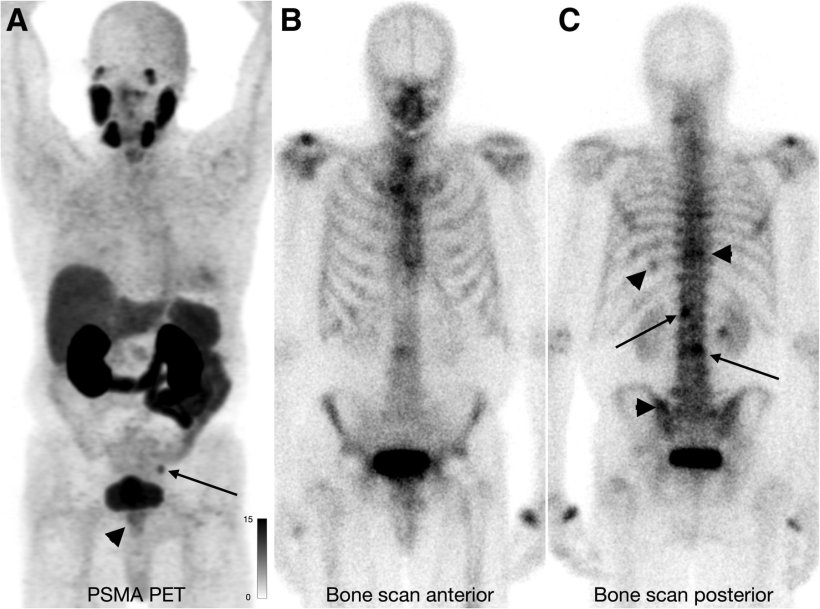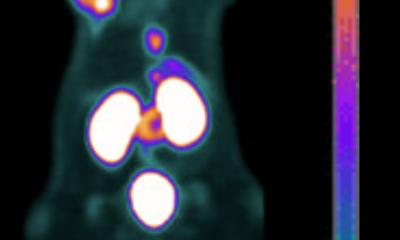
© Society of Nuclear Medicine and Molecular Imaging
News • Nuclear medicine
Prostate cancer: staging issues in bone scans compared with PSMA PET
Bone scans have been found to overstage prostate cancer at initial staging compared to prostate specific membrane antigen (PSMA) PET, according to new research published in the November issue of The Journal of Nuclear Medicine.
The significant false-positive rate of metastases on bone scans means that definitive therapy for local disease may have been withheld from patients inappropriately. The findings were published in the Journal of Nuclear Medicine.
PSMA PET is more accurate than CT and bone scans for staging patients with prostate cancer and in recent years has become the standard imaging modality at initial staging. Nearly all prostate cancer trials have used CT and bone scans for staging, however, and the best way to apply those data to patients staged with PSMA PET remains unclear. “Most research to date has focused on the increased sensitivity of PSMA PET versus conventional imaging such as bone scans and CT,” said Thomas Hope, MD, vice chair of clinical operations and strategy in the Department of Radiology and Director of Molecular Therapy at the University of California in San Francisco. “In this study, my colleagues and I took the opposite approach and looked at where PSMA PET was negative when bone scans were positive.”
Rather than receiving definitive radiation treatment for localized disease, these patients may have received treatment aimed at preventing the further spread of what was incorrectly identified as metastatic disease
Thomas Hope
The multicenter retrospective diagnostic study included 167 prostate cancer patients at various disease states who were imaged with bone scans and PSMA PET within 100 days. Each study was interpreted by three blinded readers. Using PSMA PET scans as the reference standard, researchers evaluated positive predictive value, negative predictive value, and specificity for bone scans as well as inter-reader reproducibility, positivity rate, uptake on PSMA PET, and number of lesions.
While the specificity of bone scans was found to be high and similar across disease states, the positive predictive value of bone scans at initial staging was found to be much lower than in the overall population. When compared to PSMA PET, more than half (57%) of bone scans at initial staging were found to contain false-positive metastases.
“Rather than receiving definitive radiation treatment for localized disease, these patients may have received treatment aimed at preventing the further spread of what was incorrectly identified as metastatic disease,” said Hope. “These results bring into question how to apply data from clinical trials that are based on bone scans to patients who receive PSMA PET. Looking at the big picture, this study highlights the importance of understanding how test characteristics impact patient management.”
Source: Society of Nuclear Medicine and Molecular Imaging
15.11.2023





